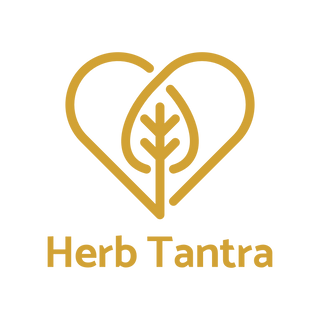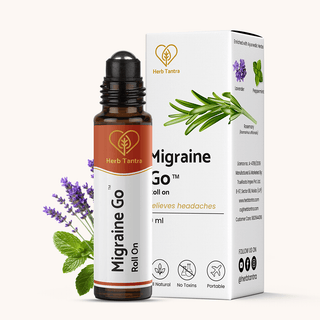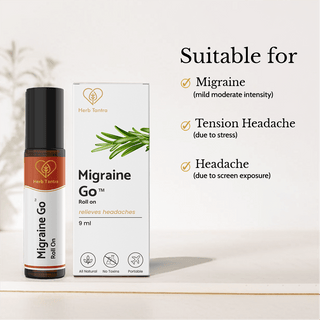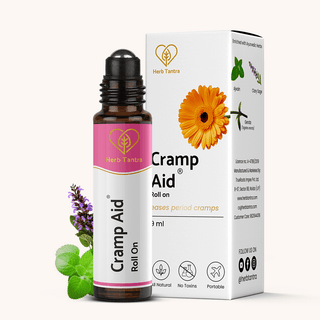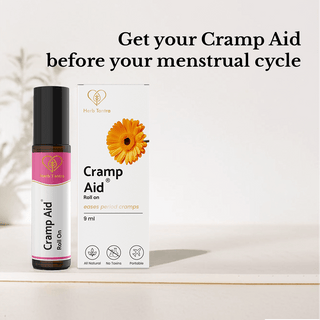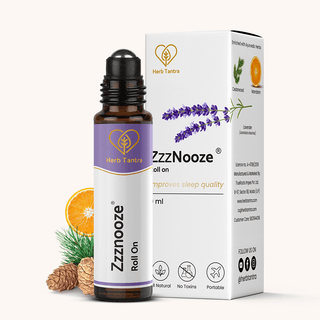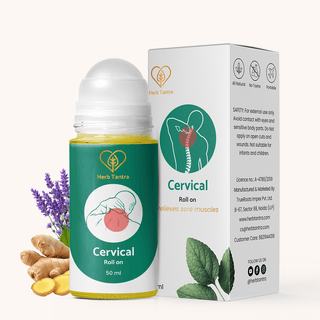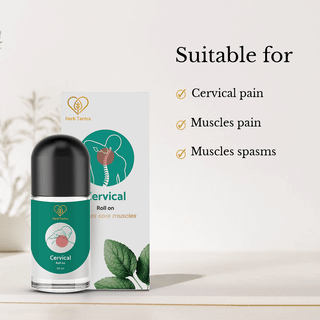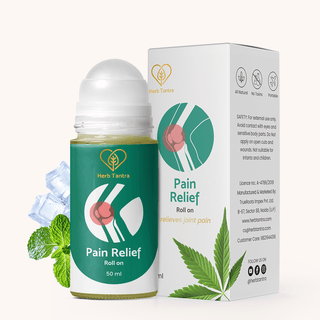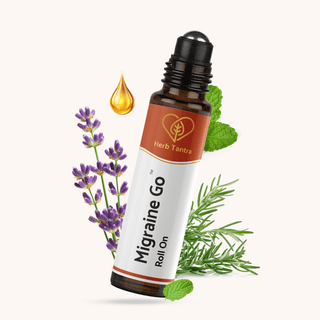Polycystic Ovary Syndrome (PCOS) and Polycystic Ovary Disorder (PCOD) affect millions of women worldwide, often leading to irregular periods, hormonal imbalance, bloating, weight fluctuations, and fatigue. While medication is sometimes necessary, research consistently shows that diet and lifestyle changes play a crucial role in supporting hormonal balance and improving symptoms naturally.
In this guide, you’ll learn how nutrition can stabilize hormones, the best foods for PCOS/PCOD, and how to complement your self-care routine with Herb Tantra’s Women’s Health Range for gentle, daily support.
Understanding Hormonal Imbalance in PCOS and PCOD
PCOS and PCOD occur when the ovaries produce excess androgens (male hormones) or when the body becomes resistant to insulin. This hormonal disruption can cause irregular periods, bloating, weight gain, excessive hair growth, and sometimes acne.
Many women ask - “How can I tell if my irregular periods are due to stress or an underlying hormonal disorder?” While stress may delay your cycle occasionally, persistent irregularity—especially with other symptoms like sudden weight gain or excessive hair growth—warrants medical evaluation. Diet, however, remains a cornerstone of prevention and ongoing support.
The Role of Diet in Hormonal Balance
1. Stabilising Blood Sugar
A diet rich in complex carbohydrates, lean proteins, and healthy fats helps keep insulin levels stable. This is key because insulin resistance is one of the major drivers of PCOS and PCOD. Choose whole grains, legumes, nuts, and seeds over refined carbs.
2. Reducing Inflammation
Inflammation worsens hormonal imbalance. Anti-inflammatory foods like turmeric, ginger, leafy greens, berries, and omega-3 fatty acids (flaxseed, chia seeds, fatty fish) can help reduce systemic inflammation and support healthier cycles.
3. Supporting Liver Detoxification
Your liver processes excess hormones. Consuming cruciferous vegetables (broccoli, cabbage, kale), fresh fruits, and plenty of water helps the liver break down and eliminate surplus hormones naturally.
Best Foods for PCOS/PCOD Hormonal Balance
- Leafy greens such as spinach, kale, and methi reduce bloating and improve iron stores lost during heavy periods.
- Low GI fruits like berries, apples, and pears provide antioxidants without spiking blood sugar.
- High-fiber foods like oats, barley, and lentils support gut health and regulate estrogen levels.
- Healthy fats—avocados, olive oil, coconut, and seeds—are essential for hormone production and reducing inflammation.
- Spearmint tea has been studied for its potential to reduce androgen levels in women with PCOS.
- Probiotics (yogurt, kefir, fermented foods) support gut-hormone interaction, improving mood and immunity during menstruation.
Foods & Drinks to Avoid
- Refined sugars and carbs worsen insulin resistance.
- Excess caffeine can trigger anxiety and hormonal stress.
- Highly processed snacks with trans fats or hidden sugars inflame the body and disrupt hormones.
Lifestyle Habits to Pair With Diet
Women often ask - “Which yoga poses help with menstrual pain and hormonal balance?” Gentle yoga poses like Supta Baddha Konasana (Reclined Butterfly), Bhujangasana (Cobra), and Child’s Pose stimulate pelvic circulation, reduce cramps, and calm the nervous system. Even 15–20 minutes daily supports hormonal balance over time.
Stress management, good sleep hygiene, and staying hydrated also improve the efficacy of a balanced diet.
How Herb Tantra’s Women’s Health Range Supports You
Herb Tantra offers natural, travel-friendly, Ayurvedic formulations designed for hormonal comfort -
- Cramp Aid Roll On – all-natural, with Genda, Ajwain and Clary Sage. Apply to your lower abdomen, thighs, and back during periods for instant relief from cramps and bloating.
- Cramp Aid Herbal Tea – a calming blend of 9 Ayurvedic herbs including Chamomile, Spearmint, Lavender and Ginger. Sip daily to reduce fatigue and support hormonal balance.
- PCOS Bundle – combines the Cramp Aid Roll On, Cramp Aid Tea, and Herb Tantra’s Apple Cider Vinegar with the mother to help improve digestion, support weight management and stabilize hormones naturally.
By combining the right foods with supportive herbal remedies, you create a holistic approach to PCOS and PCOD symptom management.
Putting It All Together
- Focus on whole, anti-inflammatory foods.
- Stay hydrated and include herbal teas like spearmint or chamomile.
- Use yoga and stress-reduction techniques daily.
- Complement your diet with gentle Ayurvedic support such as Herb Tantra’s Women’s Health Range.
With consistency, these steps can reduce bloating, regulate your menstrual cycle, improve energy, and enhance hormonal balance naturally.
FAQs
1. Can diet alone cure PCOS or PCOD?
No, but a balanced diet significantly reduces symptoms and improves hormonal health alongside other lifestyle measures.
2. What are the early signs of PCOS vs PCOD?
Irregular periods, weight gain, acne, and excess hair growth. PCOS usually involves multiple ovarian cysts; PCOD may simply indicate hormonal imbalance.
3. How does Apple Cider Vinegar help with PCOS?
It can improve insulin sensitivity, support digestion, and assist in weight management—making it a helpful adjunct to a balanced diet.
4. Are herbal teas effective for regulating periods naturally?
Yes. Herbal teas containing chamomile, spearmint, and ginger reduce inflammation, calm cramps, and support hormonal balance over time.
5. When should I see a gynaecologist for PCOS or irregular periods?
If your cycles are consistently irregular for more than three months, or if you experience severe symptoms such as heavy bleeding, consult a qualified doctor.
